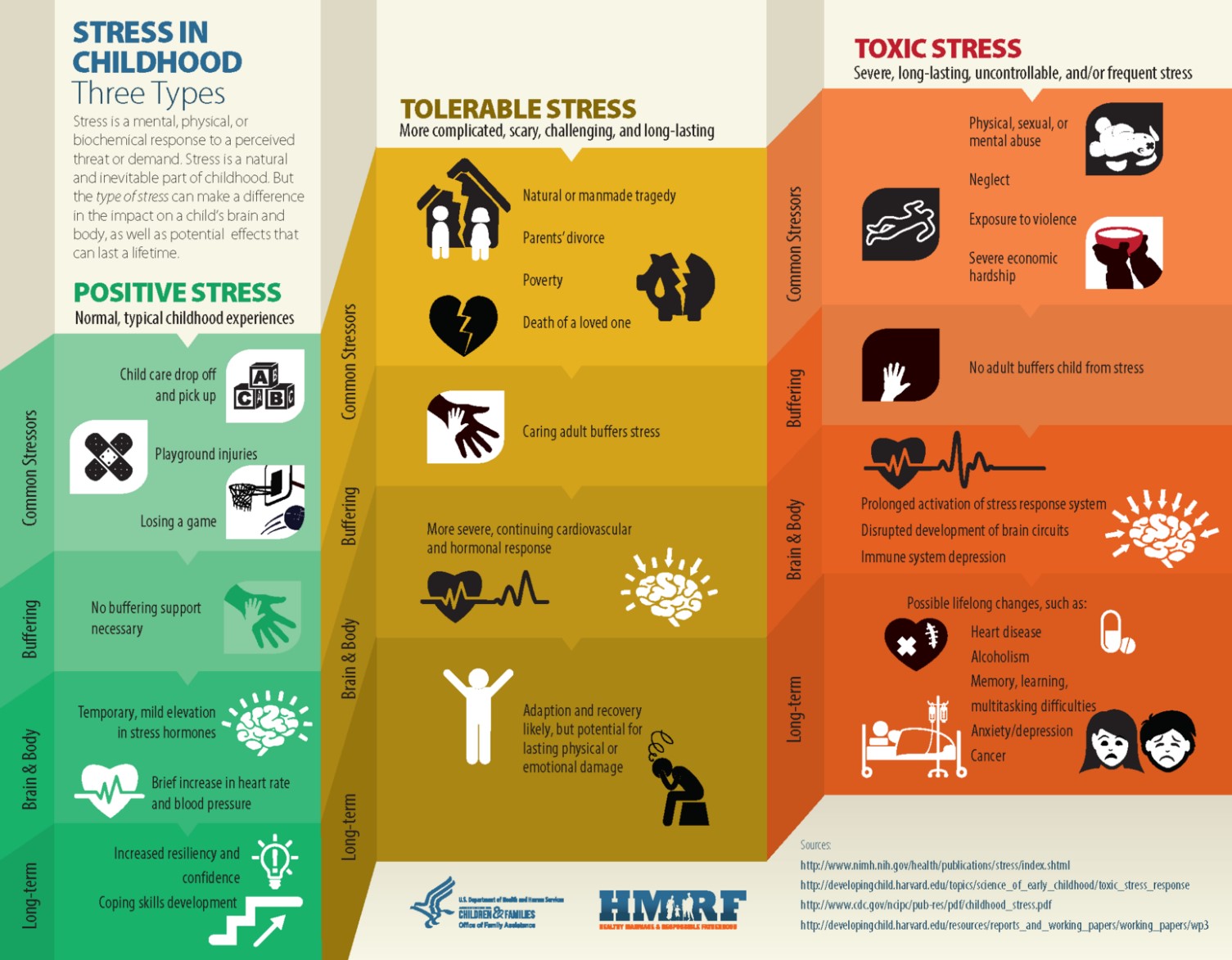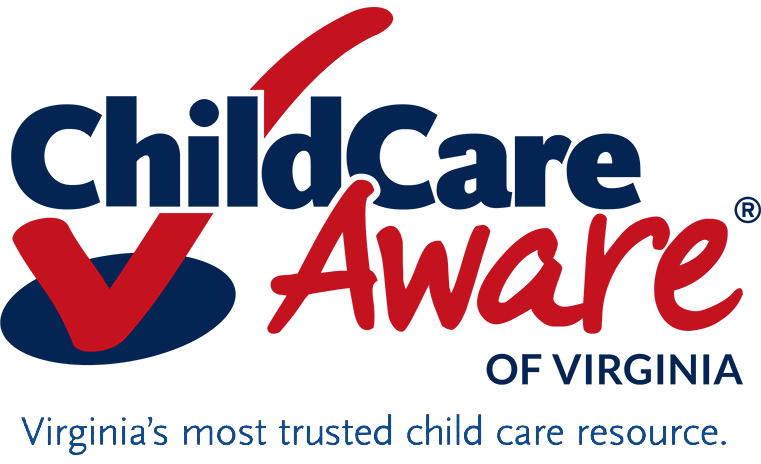
Children and adults handle stress differently. We learned that common reactions for adults include headaches, shutting down, lashing out, blaming, or even resorting to abuse and neglect. Adults have the ability to cope with such stressors, though, and hopefully have some up with ways to positively react to stress. Children, on the other hand, haven’t had enough experience and don’t have access to the coping mechanisms that adults do.
So how is stress affecting our children and how do we know when they are feeling it?
Types of Stress
Stress is a natural and inevitable part of childhood, but different types of stress can have different effects on children. Today we’ll discuss the three types of childhood stress.
Positive stress comes from typical childhood experiences. These include being dropped off at child care, getting an injury on the playground, or losing a game. This type of stress is temporary and doesn’t require support from adults. In the long run, it is a positive stress that will increases their confidence and help them to develop their coping skills.
Tolerable stress is more complicated and long-lasting. Natural or manmade tragedies can cause tolerable stress, such as a parents’ divorce, living in poverty, or experiencing the death of a loved one. These stressors require the attention of a caring adult to support the child. This stress causes a cardiovascular and hormonal response in the body. It has the potential for lasting physical or emotional damage in children, especially if they don’t have that caring adult to help them cope.
Toxic stress is severe and long lasting. It results from experiences such as abuse, neglect, or exposure to violence. This occurs when no adult buffers the child from the stress. When a child continuously experiences toxic stress, it can disrupt the development of brain circuits and cause immune system depression. It can lead to heart disease, alcoholism, learning difficulties, anxiety, depression, and even cancer.

immune system depression. It can lead to heart disease, alcoholism, learning difficulties, anxiety, depression, and even cancer.
How Can I Tell?
As we’ve discussed in earlier blogposts, many different situations cause children to experience stress. Since children cope differently than adults, it’s important for us to look out for stressors and stress reactions in our children. We know they are feeling it, so learn what it looks like for your child!
Observe their behavior, are they acting out, throwing temper tantrums, taking more risks than normal, sucking their thumb, withdrawing or acting up more often?
How about their health? Are they showing chronic illness that just won’t go away, do they have more stomachaches and headaches, are they biting their nails, or has their diet changed?
What about bedtime? Are they tired all the time or having insomnia when they usually sleep through the night? Do they wake of nightmares or wet the bed when they were once through that stage?
While you can’t shield your children from all stress, you can help them learn to cope with it. Next week we will talk about strategies to help manage our children’s stress and teach them healthy ways to work through it.
Additional Resources
- Take a look at this quick video on stress from a child’s perspective
- Download this toolkit from the American Academy of Pediatrics
- More information on how to identify stress in your children from the American Psychological Association

